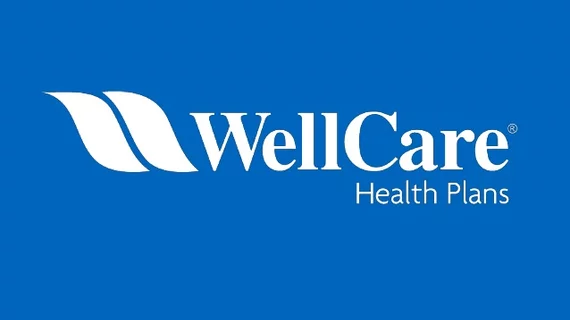WellCare to buy Aetna’s Part D biz in CVS deal divestiture
CVS Health’s $69 billion acquisition of health insurance giant Aetna is not going to complete without divestments. WellCare Health Plans, a Tampa-based managed care company, has agreed to acquire Aetna’s entire Medicare Part D prescription drug plan business, which encompassed 2.2 million members as of June 30.
The agreement was detailed in a public filing by CVS Health Thursday morning. WellCare’s acquisition will be effective Dec. 31, 2018, according to the filing.
The divestiture is part of CVS Health’s attempt to purchase Aetna in a deal valued at approximately $69 billion. Previous reports indicated that the two companies would need to divest some assets related to their prescription drug plans, which had some overlap, in order to clear the antitrust process by regulators.
The deal brings together a major health insurance and services provider with one of the nation’s largest pharmacy benefit managers (PBMs) and pharmacy retailers. The CVS-Aetna deal still hinges on federal and state regulatory approval, including the Department of Justice.
“CVS Health believes the Divestiture is a significant step toward completing the DOJ’s review of the CVS Health Transaction,” the filing states. “CVS Health and Aetna continue to engage in productive discussions with the DOJ.”
The company also remained confident the deal would close in the fourth quarter of 2018.
Regulatory hiccup
Even with divestitures in place, some regulators may not be on board with the transaction. The DOJ previously blocked a $37 billion acquisition of Humana by Aetna in 2016, even with divestiture plans.
Earlier this week, a New York regulator wrote to her counterpart in Connecticut opposing the deal, citing numerous concerns. The combined entity will create an unfair competitive advantage for Aetna, too much concentration in the PBM space, higher Part D concentration and potentially harm consumers with higher drug prices, data privacy concerns and higher healthcare prices.
“The proposed transaction, if approved, would create an incredibly large market share in the healthcare market for the combined company, in an already concentrated marketplace, and is likely to increase prices for members and reduce options for consumers, without any discernible increase in quality,” Maria Vullo, superintendent of the New York Department of Financial Services, wrote in the letter. “CVS already is a major player in the unregulated and opaque PBM market, which in itself creates real concerns as to the cost of prescription drugs and the reduction in competition.”
She further questioned CVS’s commitment to healthcare quality and service as a large commercial enterprise. Connecticut has scheduled a hearing on the deal for Oct. 4. Other policymakers and industry stakeholders have called for more oversight over mega-deals like CVS-Aetna.
The deal looked more optimistic after the DOJ cleared another significant merger in the space on Sept. 19—Cigna’s $67 billion acquisition of Express Scripts.

